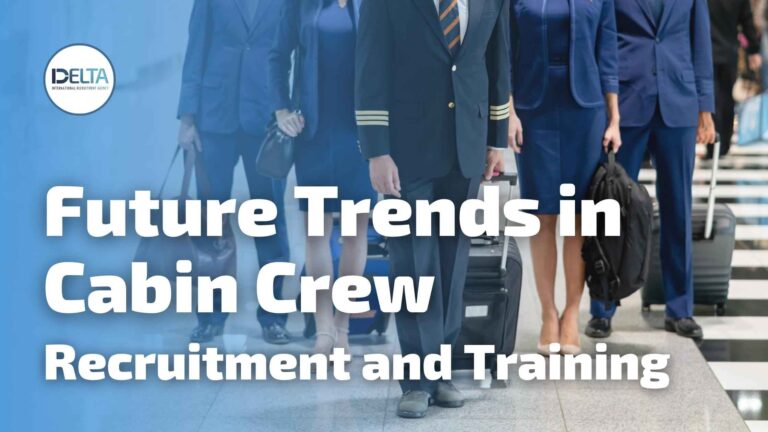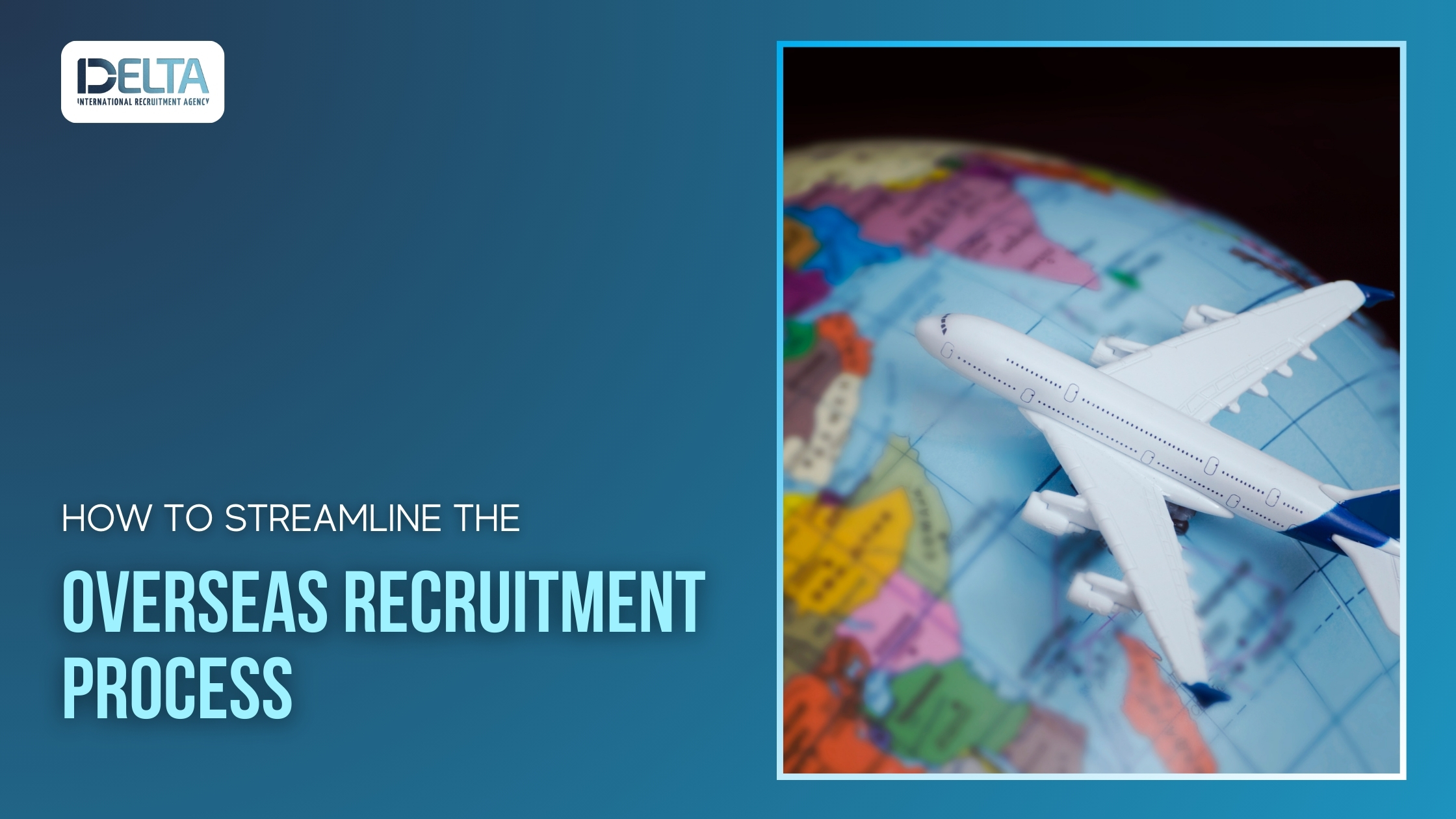The future of cabin crew recruitment and training is being shaped by advancements in technology and changing industry needs. As the industry continues to evolve, new trends are emerging that will shape the future of cabin crew recruitment and training.
These trends promise improved efficiency, safety, customer service, and adaptability. Careful consideration and highlighting the impact they will have on the industry is a must if you’re looking to adapt the career as cabin crew.
Current Trends in Cabin Crew Recruitment and Training
Here are some on-going recruitment trends in the hiring of cabin crew which are have major effect:
1. High competition and rigorous selection process
With a growing number of individuals aspiring to become cabin crew members, airlines are faced with the challenge of selecting the most suitable candidates. The recruitment process has become highly competitive, often involving multiple stages, including interviews, assessments, and group exercises.
2. Emphasis on customer service skills
Airlines are increasingly placing emphasis on the customer service skills of cabin crew members. This includes effective communication, problem-solving abilities, and the ability to handle challenging situations with professionalism and empathy.
3. Focus on diversity and inclusion:
Airlines are recognizing the importance of diversity and inclusion in their cabin crew teams. They are actively seeking individuals from different backgrounds, cultures, and languages to provide a welcoming and inclusive experience for passengers.
Future Trends in Cabin Crew Recruitment and Training
1. Artificial Intelligence (AI) in recruitment
AI technologies, such as automated screening systems and chatbots, are being integrated into the recruitment process. These tools can streamline the initial screening of candidates, assess their suitability based on predefined criteria, and provide personalized feedback.
2. Virtual reality (VR) training simulations
VR technology is revolutionizing cabin crew training by providing realistic simulations of various scenarios, including emergency situations. This immersive training allows crew members to practice their response skills in a safe and controlled environment.
3. Personalized training programs
Future trends in training will focus on personalized programs tailored to the individual needs of cabin crew members. Training modules will be designed to enhance specific skills and competencies based on each crew member’s strengths and areas for improvement.
4. Multilingual and cultural competence training
With the increasing global nature of the aviation industry, cabin crew members are expected to be proficient in multiple languages and possess cultural competence. Training programs will be developed to equip crew members with these skills to better serve diverse passengers.
Impact of Future Trends on Cabin Crew Recruitment and Training
1. Enhanced efficiency and accuracy in recruitment
AI technologies can significantly streamline the recruitment process, reducing the time and resources required to identify suitable candidates. This improves efficiency and ensures that the most qualified individuals are selected.
2. Improved safety and emergency preparedness
VR training simulations allow cabin crew members to practice emergency procedures in a realistic and immersive environment. This enhances their ability to respond effectively during actual emergencies, ensuring passenger safety.
3. Enhanced customer service experience
Personalized training programs and cultural competence training enable cabin crew members to provide a tailored and exceptional customer service experience. This fosters customer satisfaction and loyalty.
4. Increased adaptability and resilience
Future training trends equip cabin crew members with the skills to adapt to evolving industry requirements and challenges. This enhances their resilience in handling unexpected situations, ensuring smooth operations.
Challenges and Considerations in Implementing Future Trends
1. Cost implications
The implementation of advanced technologies and personalized training programs can incur significant costs. Airlines need to carefully evaluate the return on investment and balance the expenses with the benefits gained.
2. Ethical considerations of AI and VR
The use of AI and VR technologies raises ethical concerns, such as data privacy, algorithm bias, and the psychological impact of immersive simulations. It is crucial to ensure ethical guidelines and regulations are in place to address these concerns.
3. Balancing automation with human touch
While automation can enhance efficiency, it is essential to maintain a human touch in cabin crew recruitment and training. The ability to connect with passengers on a personal level and provide empathetic assistance remains crucial.
4. Ensuring inclusivity and fairness in recruitment
As AI technologies are employed in the recruitment process, it is vital to ensure fairness and avoid bias. Measures should be implemented to prevent discrimination based on gender, ethnicity, or other protected characteristics.
Conclusion
The future of cabin crew recruitment and training is being shaped by advancements in technology and changing industry needs. AI in recruitment, VR training simulations, personalized training programs, and multilingual/cultural competence training are among the key trends. These trends promise improved efficiency, safety, customer service, and adaptability. However, careful consideration must be given to cost implications, ethical concerns, and maintaining a balance between automation and the human touch.
Recruitment: Future Trends in Cabin Crew Recruitment and Training




